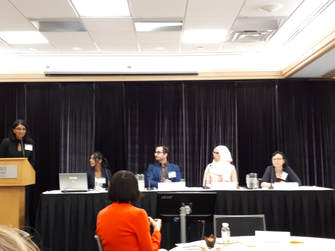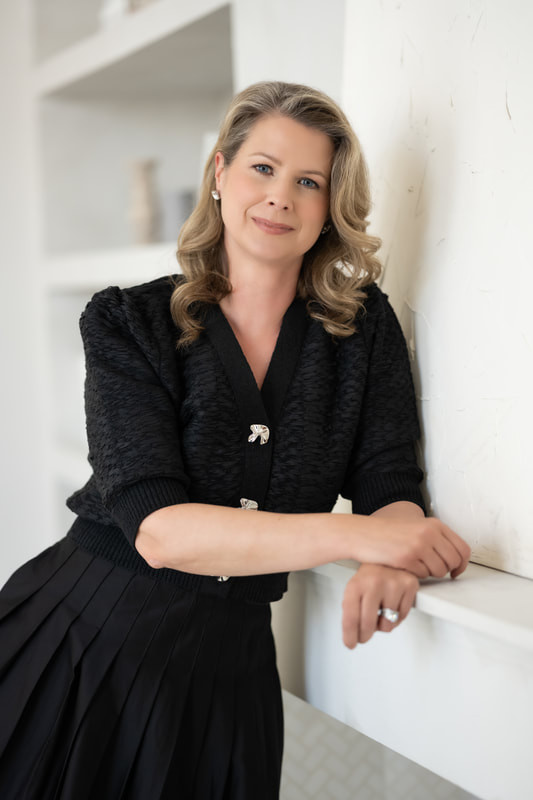 A few weeks ago I attended a program sponsored by the Ontario Bar Association’s Constitutional, Civil Liberties and Human Rights Law section called “Lawyers as Agents for Change: Tackling Hate, Racism, Xenophobia from a Practitioner’s Perspective”. The program’s goal was to have its expert panel unravel key questions from a lawyer’s perspective on how to fight hate and racism, both when our clients are faced with these issues, and when they invade our daily legal practices. The panel consisted of Anita Bromberg (the Director of Advocacy and Engagement, Friends of Simon Wiesenthal Center), Mihad Fahmy (Barrister & Solicitor and Chair, Human Rights Committee, National Council of Canadian Muslims) and Corey Shefman (Olthuis Kleer Townshend LLP). The discussion was moderated by lawyer Richa Sandill (MacDonald & Associates). A few discussion points are summarized below: Rising Tide of Hate or Willful Blindness? The first question addressed was whether there really was a “rising tide of hate” in Canada or whether racism and hate that has always been here has just bubbled to the surface, and now has a spotlight on it? Ms. Bromberg wanted to be “very clear and careful that we don’t blame others for situations we have here in Canada,” alluding to the Trump administration and other racially motivated hate crimes in the United States. For example she referred to an anti-Semitic sign that was painted on an overpass on Highway 400: “That’s not Trump egging this person on. Our first step is to take responsibility that Canada has its hate.” Ms. Bromberg also admitted though that there has been a measurable rise in hate activity, but took the position that someone has pulled back the curtain and emboldened those that have always been here. “Our job as lawyers is to get at the underlying cause,” said Ms. Bromberg. Corey Shefman agreed that racism has always been here in Canada and we cannot blame the events from south of the border: “Some things have never been hidden; it depends on who you are.” Mr. Shefman gave the example of whenever any article involving Indigenous persons is posted on a major Canadian media website the comment section is always shut off due to the toxic nature of the comments. Ms. Fahmy observed that her own experiences have been different than her children’s. Growing up, Muslims in Canada were in such small numbers that others were simply curious about them. Now, “Muslims don’t feel safe”, she said. As their numbers grew and they entered institutions, the fear grew. As lawyers it is our job to help in the process to make them feel safe and included and that sometimes “we don’t have the luxury to try to figure out the root causes”. Legal Remedies for our Clients Mr. Shefman noted that the repeal of section 13 of the Canadian Human Rights Act (this section prohibited speech inciting hatred of people based on race, religion, sexual orientation and other protected characteristics) was unfortunate, and the lawyer’s toolbox has shrunk. “We have to become more creative,” he observed. As an example, during an inquest in Winnipeg where the deceased was an Indigenous victim of a police shooting Mr. Shefman argued that the inquest should consider whether systemic racism played a role in his death. A motion was required to have this issue even considered (not to make a finding that systemic racism played a role, but just to have it considered in the first place). The panelists also note that while the Criminal Code and criminal proceedings represent one legal remedy, the Criminal Code can be a blunt instrument, and you need third party involvement in laying charges. The Criminal Code can be softened with restorative sentences, noted Ms. Bromberg. The overall consensus from the panel was that as lawyers, acting on behalf of our clients, we need to look outside the box for legal remedies. There is little common law on racism and hate and the available legislation is not as helpful. Ms. Bromberg encouraged us as lawyers to discuss among ourselves what tools we want added to our toolbox. Lawyers are privileged, and as advocates we can ask the Attorney General to stop sitting on hate crimes and put pressure on the Attorney General and the government for change. Non-Legal Involvement Ms. Fahmy advised lawyers to look at “what can we do in our non-legal sphere as human rights advocates”, citing as an example the large number of individuals who turned out to protest an anti-Muslim rally that was planned in London, Ontario. “Sometimes we have to take our lawyer hats off and see what the institutions call for,” said Ms. Fahmy, “Police units need a lot more funding; we can reach out to communities, etc.” Mr. Shefman agreed that the skills we have as lawyers translate to non-legal advocacy as well. We also need to build coalitions and networks and ask how can our institutions (the OBA, LSUC, CBA) use their powerful voices? Day-to-Day Agents of Change Lawyers can also bring about change in our day to day practice and interactions with other lawyers. Ms. Fahmy suggested mentoring racialized lawyers and to not wait for them to bring up these issues: “It is up to us to open the conversation”. She also said that “most often it is subtle and not obvious hate comments. Am I being bullied because the opposing lawyer is a bully? Or is it because I am a new lawyer? Or is it because I am a woman of colour and in a hijab? It’s hard to know. All you can do is do your job and do it well. How do you deal with subtle comments? Do a good job for your client.” “Sometimes you have to throw tact out the window”, said Ms. Bromberg when dealing with hateful or racist comments in practice. Mr. Shefman’s advice to a young lawyer wanting to be an agent for change is to “pick an issue”. As lawyers we can over-extend ourselves. Keep your eyes open for opportunities and volunteer. Also, as lawyers we are in a privileged position but “don’t assume that when you walk into an organization that you will be in charge. There is great value to standing at the back of the room and listening.” Lawyers need to spend more time on the street, in the classroom, and in the community. Conclusion Overall it was a helpful starting point in discussing how lawyers can become or continue to be agents for change. I believe it is our professional duty to take up these roles and advocate on behalf of those who may not be in such privileged positions. I look forward to future programs from the OBA, CBA, LSUC and other organizations on this topic.
0 Comments
Your comment will be posted after it is approved.
Leave a Reply. |
Erin C. Cowling is a former freelance lawyer, entrepreneur, business and career consultant, speaker, writer and CEO and Founder of Flex Legal Network Inc., a network of freelance lawyers.
Categories
All
Archives
December 2022
|
|
(C) 2014-2024 Cowling Legal. All rights reserved.
|
Please note I am not currently practicing law.
Information on this website does not constitute legal advice and is for informational purposes only. Accessing or using this website does not create a solicitor-client relationship. See website Terms of Use/Privacy Policy. info@cowlinglegal.com
3080 Yonge Street, Suite 6060 Toronto,ON M4N 3N1 (appointment only) |






 RSS Feed
RSS Feed
